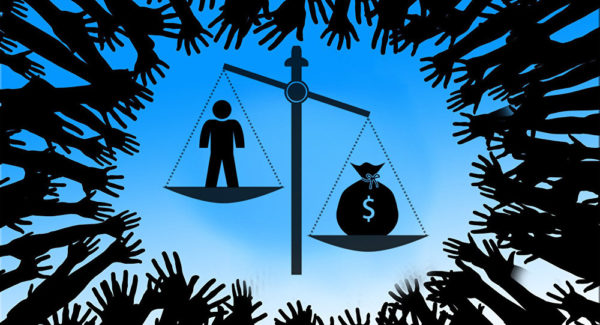
Have you ever asked yourself what the impact of your business on human rights is? When you are seated at your desk or on a way to a meeting with a potential client, perhaps human rights is the last thing on your mind as you work towards increased sales and profits for your business. We hear about multinational corporations and other big companies violating human rights almost every other day. Did you know that small, medium sized and growing businesses also face the same risk of violating human rights? As your company grows, you will bring people on board as employees. It is important to create a workplace environment where human rights are upheld. Your business also has an impact on the people in the community and the various activities conducted in the running of your business could either respect or violate human rights of those in that community.
I find it very encouraging to know that businesses are vehicles through which people get to enjoy and realize their human rights. For example, by earning an income from a business one is able to afford housing because they are able to pay rent from their income as the owner or as an employee. A person is also able to actually enjoy freedom of movement as travelling from one place to the other costs money. The next time you wonder if your business is making a difference, think about your employees and their families and there lies your answer. A family will share a delicious meal tonight because the bread winner is your employee. I think that is a great way to change the world, one person or family at a time.

Image: Sputnik International
It is important to include human rights risk assessment in the overall risk management of your business. Violation of human rights will have a negative impact on your business. This could include: reduction in profits due to compensation for breach of human rights and a negative impact on the reputation of the company. Article 20 (1) of the Kenyan constitution recognizes both horizontal and vertical application of the bill of rights by stating that it binds all persons and therefore companies, being legal persons, have a duty to respect human rights.
Since breach of human rights by your company could result in a decrease in profits, will upholding human rights make your business more profitable? The answer is yes, more often than not. Sometimes this might not be immediate. Paying attention to human rights has a high likelihood of improving client relations and reputation of your company. Clients like to work with companies that have a good reputation and upholding human rights gives a company a good reputation. For small and growing businesses, it is important to maintain a good reputation because of the high cost of repairing a damaged reputation.
Other advantages that come with upholding human rights include:
- Attraction and retention of efficient and skilled staff: when seeking to actively promote human rights, the actions that follow include workplace policies that uphold human rights. For example, a policy against discrimination. It also creates a healthy work environment which leads to employee motivation leading to higher productivity.
- As opposed to companies that violate human rights, a company that upholds human rights creates a good reputation for itself.
- New ideas and products may be birthed from simply having a desire to uphold human rights. For example, in upholding the right to a clean and healthy environment, a company may resort to using waste material to make products.
In which area(s) does your business need to uphold or improve on human rights? Please share in the comments below.
















